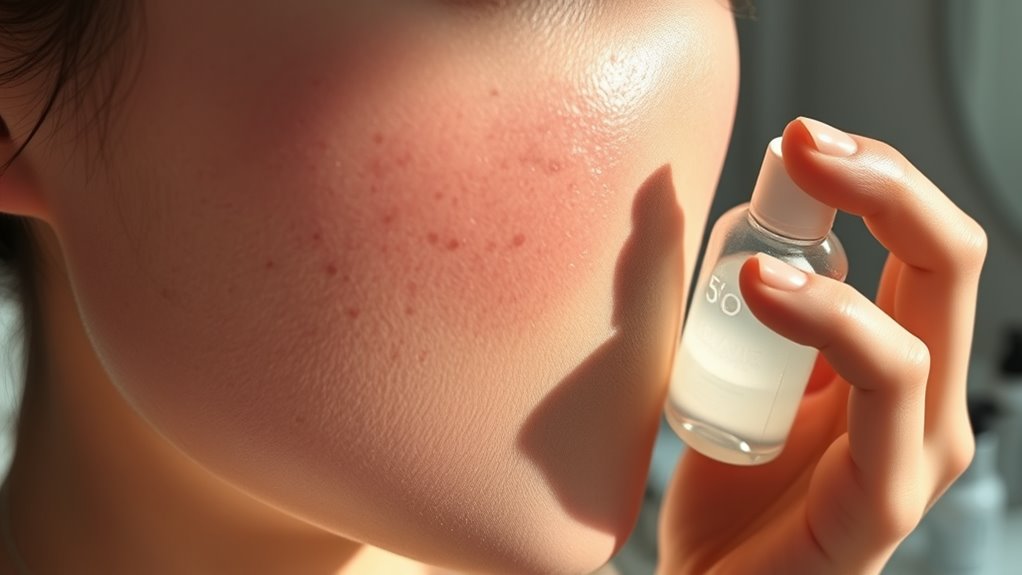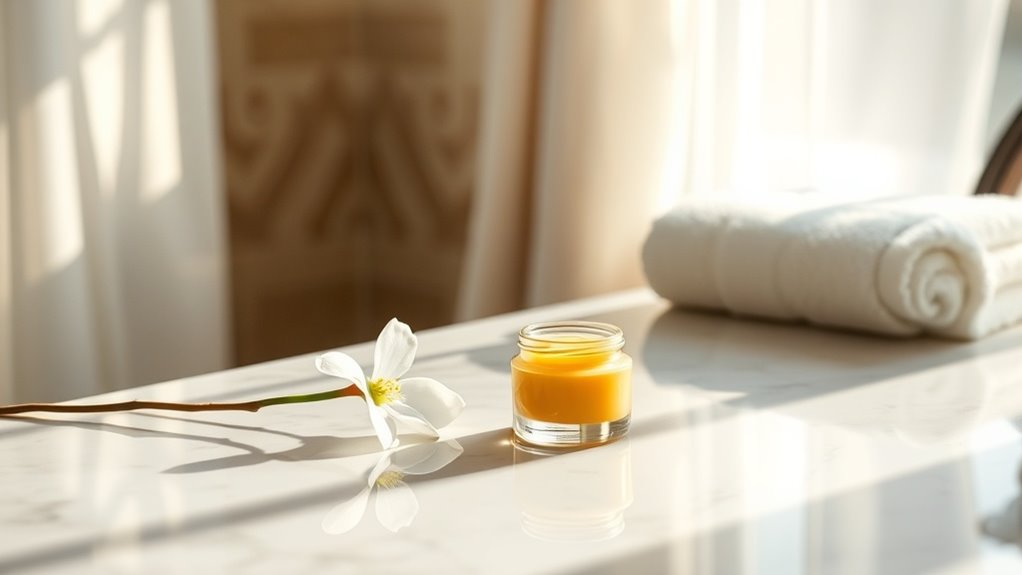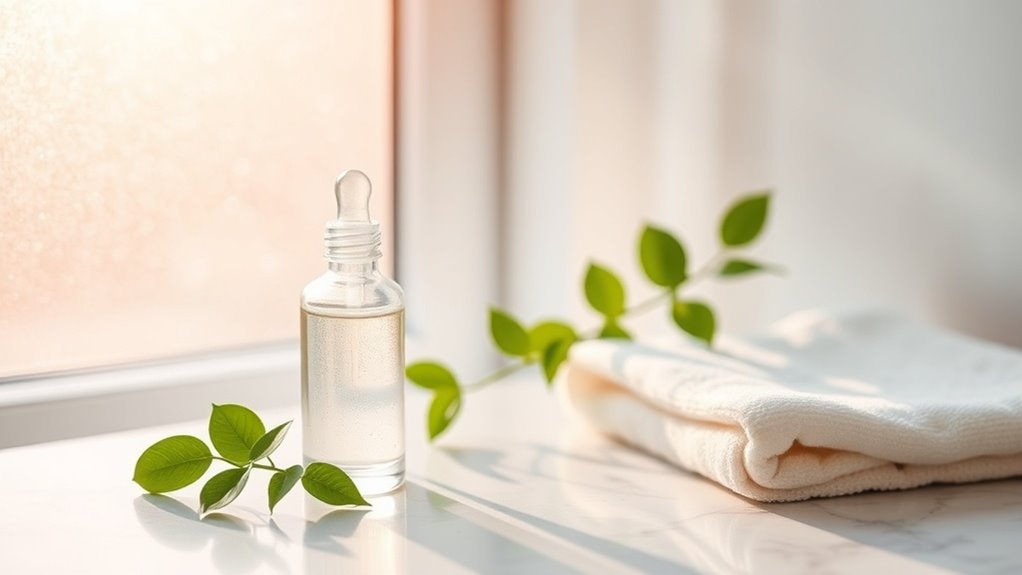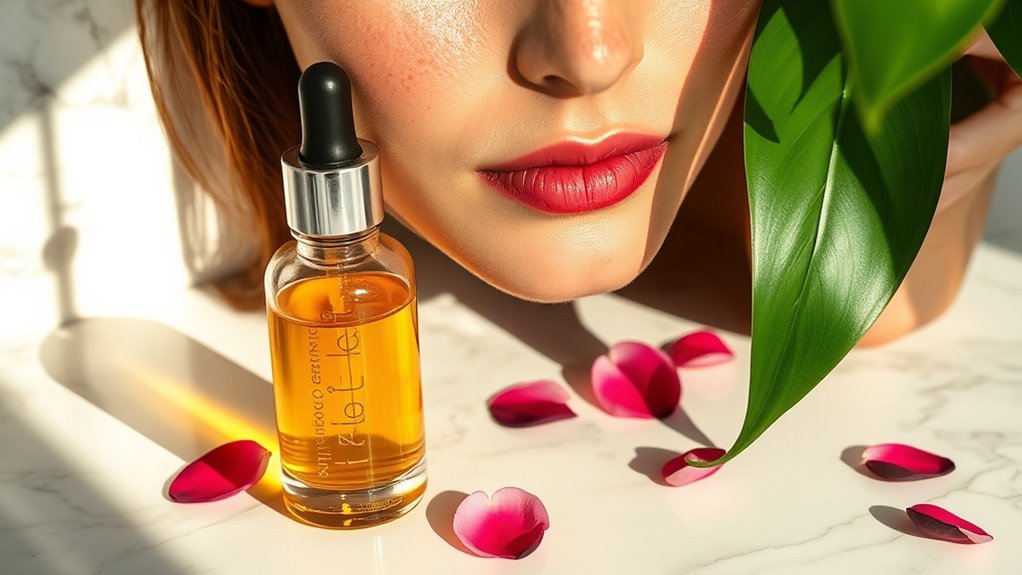These Habits Are Making Your Dark Spots Worse
If you’re struggling with dark spots, it’s crucial to consider your daily habits. Skipping sunscreen, over-exfoliating, and neglecting hydration can all contribute to worsening hyperpigmentation. Even common skincare routines may harbor hidden pitfalls that irritate your skin. Understanding these habits can help you take control of your skin’s health. But what specific changes can you make to see improvement? Let’s explore the factors that might be holding you back.
Key Takeaways
- Skipping daily sunscreen allows UV rays to penetrate skin, accelerating dark spot formation and worsening pigmentation.
- Over-exfoliating strips the skin’s barrier, leading to irritation and increased pigmentation; limit exfoliation to 1-3 times weekly.
- Neglecting hydration causes dull skin and enhances dark spot development; drink enough water and use hydrating skincare products.
- Using harsh skincare products irritates the skin and exacerbates dark spots; opt for gentle, fragrance-free formulations.
- Ignoring underlying skin conditions like melasma or acne leads to persistent pigmentation issues; consult a dermatologist for targeted treatments.
Skipping Sunscreen Daily
Many people often underestimate the importance of wearing sunscreen daily, which can significantly worsen dark spots on the skin. UV exposure triggers melanin production, leading to hyperpigmentation and dark spots. By skipping sunscreen, you’re allowing harmful rays to penetrate your skin’s surface, accelerating the formation of these spots. Even on cloudy days, UV rays can still affect your skin, making daily application crucial. Dermatologists recommend a broad-spectrum sunscreen with at least SPF 30, applied every two hours. Never skip sunscreen is essential for protecting your skin from harmful UV rays and preventing premature aging.
Over-Exfoliating Your Skin
While protecting your skin from UV damage is vital, another practice that can worsen dark spots is over-exfoliating.
When you exfoliate too often, you strip away the skin’s natural barrier, leading to irritation and increased pigmentation. Over-exfoliation can also result in barrier damage, making your skin more susceptible to environmental stressors.
Over-exfoliating can damage your skin’s natural barrier, causing irritation and worsening pigmentation issues.
To maintain a balanced exfoliation routine, consider these tips:
-
Limit exfoliation to 1-3 times per week.
-
Choose gentle exfoliants, like alpha hydroxy acids (AHAs) or beta hydroxy acids (BHAs).
-
Pay attention to how your skin reacts; reduce frequency if irritation occurs.
-
Always follow exfoliation with a hydrating serum or moisturizer to support skin recovery.
Neglecting Proper Hydration
How often do you think about the role hydration plays in your skin’s health?
Staying properly hydrated is crucial for maintaining your skin’s elasticity and overall appearance.
When you’re dehydrated, your skin can appear dull and more prone to dark spots.
Insufficient water intake hampers circulation, reducing nutrients that reach skin cells.
Studies show that well-hydrated skin can better repair itself and resist pigmentation changes.
Additionally, hydration helps your skin barrier function optimally, minimizing the risk of inflammation and discoloration.
To combat dark spots effectively, prioritize drinking enough water daily and consider incorporating hydrating skincare products into your routine. Furthermore, skin conditions often exacerbate the appearance of dark spots, making hydration even more essential for maintaining a healthy complexion.
Using Harsh Skincare Products
Are you aware that using harsh skincare products can significantly worsen dark spots?
When you expose your skin to aggressive ingredients, you may strip away its natural barrier, leading to irritation and inflammation, which can darken existing spots. This is especially true if your facial cleanser is too harsh for your skin type, as it can exacerbate sensitivity and damage.
To protect your skin, consider these tips:
-
Avoid sulfates – These can be overly drying and irritating.
-
Limit alcohol-based toners – They can dehydrate and irritate your skin.
-
Skip strong exfoliants – Over-exfoliation can damage skin and exacerbate dark spots.
-
Choose fragrance-free products – Fragrances can trigger skin reactions.
Make informed choices for healthier skin!
Not Addressing Underlying Skin Conditions
Ignoring underlying skin conditions can significantly contribute to the persistence of dark spots. Conditions like melasma, eczema, or acne can trigger excess pigmentation, making dark spots more prominent.
If you’re not addressing these issues, you risk worsening your skin’s overall health. For instance, untreated acne can lead to post-inflammatory hyperpigmentation, leaving you with stubborn marks long after the blemishes heal.
Consulting a dermatologist for proper diagnosis and treatment is crucial. They can recommend targeted therapies or medications that address the root cause, helping to reduce dark spots effectively and improve your skin’s appearance over time. Additionally, understanding how aging affects skin can help you take proactive steps in your skincare routine.
Don’t let underlying conditions sabotage your skin.
Ignoring a Balanced Diet
What you eat plays a crucial role in your skin’s health, and neglecting a balanced diet can exacerbate dark spots.
Poor nutrition can lead to inflammation and oxidative stress, both of which contribute to skin issues. To improve your skin’s appearance, focus on incorporating these four essential nutrients:
Neglecting proper nutrition can trigger inflammation and oxidative stress, worsening various skin conditions.
-
Antioxidants: Found in berries, nuts, and leafy greens, they combat free radicals.
-
Vitamin C: Citrus fruits and bell peppers help brighten skin.
-
Omega-3 Fatty Acids: Fatty fish and walnuts reduce inflammation.
-
Zinc: Present in legumes and seeds, it promotes skin healing.
Incorporating nutrient-rich foods into your diet can enhance your skin’s radiance and overall health. Make these adjustments for healthier skin!




